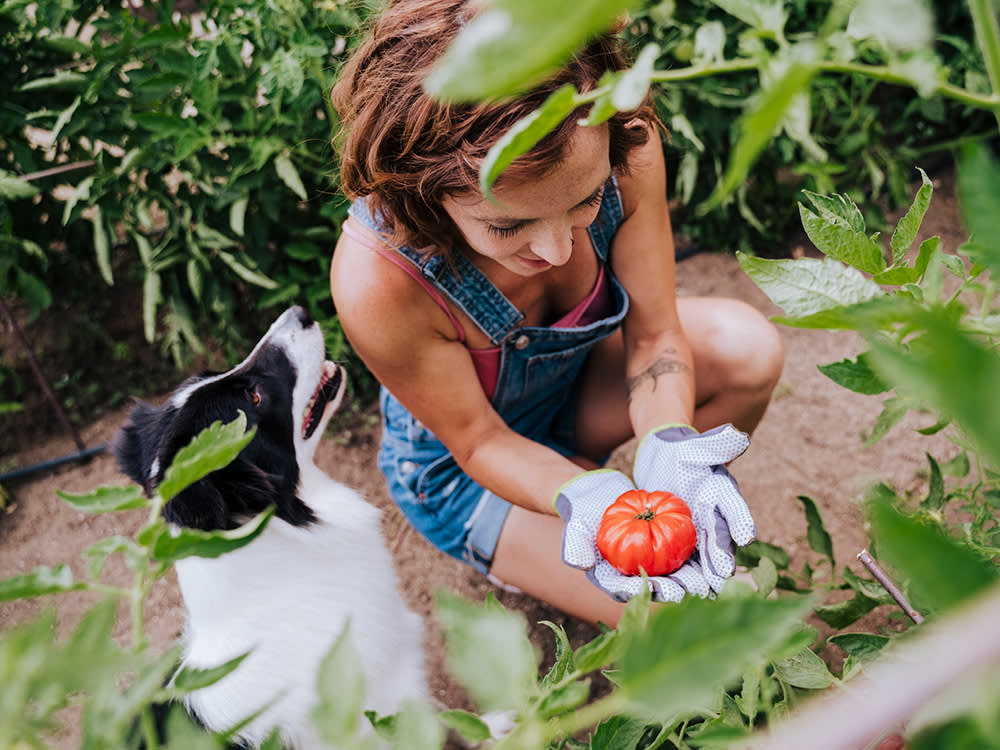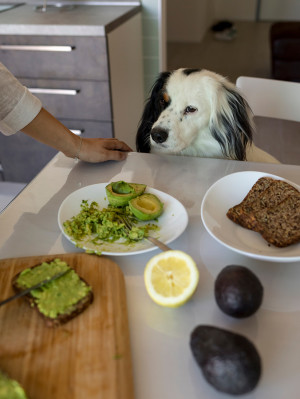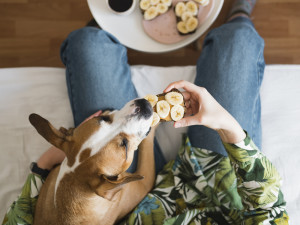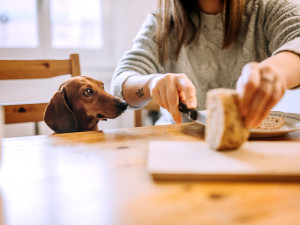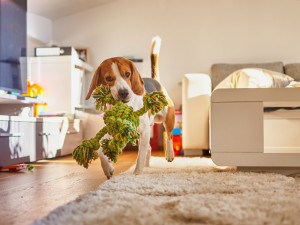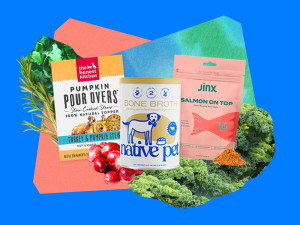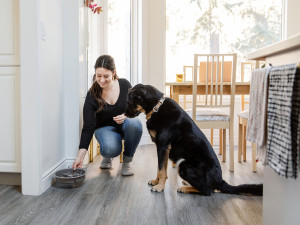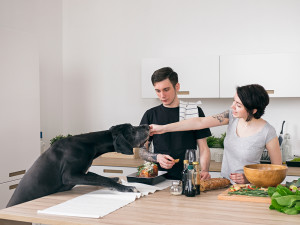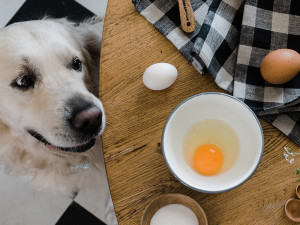Can Dogs Eat Tomatoes?
Bite-size pieces of ripe, red tomatoes are safe—but you should skip the marinara sauce.
Ripe, red tomatoes are safe for dogs to eat, but other types of tomatoes and parts of the tomato plant are unsafe for dogs. Read on to find out how to help your canine companion snack safely.
Nutrition Facts: Tomatoes for dogs
Tomatoes are high in a variety of helpful vitamins and minerals, including:
Vitamin C, which protects cells and helps with wound healing
Vitamin K, which helps prevent excessive bleeding
Vitamin A, which supports immune health
Copper, which is used in the production of red and white blood cells
Potassium, which is important in fluid balance and heart function
Magnesium, which helps to maintain parathyroid function and energy production
Lycopene, a powerful antioxidant, is also found in high concentrations in tomatoes. Antioxidants may help prevent damage to cells by neutralizing free radicals that can cause injury.
Are tomatoes good for dogs?
While their abundant vitamins and minerals can make tomatoes a nutritious snack for people, the health benefits of tomatoes have not been studied in dogs. A few bites of ripe tomato here and there won’t hurt anything, but tomatoes should not make up a significant portion of any dog’s diet. There is no evidence that adding tomatoes to a dog’s diet has any health benefits for them.
Are tomatoes completely safe for dogs?
Dogs can safely eat ripe red tomatoes, but green tomatoes, tomato vines, tomato stems, and tomato leaves contain a toxin that can make dogs sick. The toxin, called tomatine, can cause a variety of symptoms depending on the amount ingested. The toxin is eliminated from the tomato as it ripens, which is why red tomatoes are safe but green tomatoes are toxic.
Dogs who ingest a small amount of unripe tomato can have mild symptoms, including:
Dogs who get into a garden and eat a large number of green tomatoes or whole tomato plants can have more severe symptoms, which may include:
Enlarged pupils
Drooling
Lethargy/weakness
Slow or shallow breathing
Unsteadiness
Fortunately, these scary symptoms are not reported frequently in dogs. They tend to be a bigger problem in grazing animals, such as cows. Still, you should contact your veterinarian or an animal poison control center if your dog gets into any green tomatoes or chews up tomato plants.
Can dogs eat tomato vines?
Dogs should not eat tomato vines, stems, or leaves because they contain a much higher concentration of the toxin tomatine. Don’t put the cuttings from your vine-ripened tomatoes where your dog can get to them and be sure to keep your dog away from any gardens with tomato plants.
The bottom line: Can dogs eat human food?
Most dogs can eat human food, as long as you verify those foods are safe and non-toxic for them. It’s best to keep these as occasional small snacks or treats that you share with your dog, rather than a major component of their regular diet. Snacks and treats should make up less than 10 percent of your dog’s calories for the day, and you should reduce their meals to account for extra calories from snacks throughout the day.
Some dogs may not tolerate human foods well due to a sensitive stomach or other health conditions. Dogs with diabetes should avoid foods high in sugar, like most fruits. Dogs with obesity can be fed low-calorie snacks like green beans. Dogs with heart issues should stay away from saltier treats. Always discuss new snacks with your veterinarian before starting them, especially if your dog has health issues or is on medications.
Other vegetables that are safe for dogs to eat
Carrots: Carrots are a fun and safe snack for dogs. Be sure to cut them into pieces of an appropriate size for your pup or use baby carrots. A vegetable peeler can make slices that are fun.
Cucumbers: Cucumbers are mostly water and make a satisfyingly crunchy snack for dogs. Some dogs may not like the bitterness of cucumber skin, but it is perfectly safe for them to eat.
Green beans: Many pet parents use a small topper of green beans with their dog’s dinner. Dogs seem to love the flavor of both fresh and canned green beans. If you’re using the canned stuff, go for the low-salt variety to keep things safe.
Other vegetables that are potentially dangerous for dogs
Onions: Onions of all varieties contain a toxin that destroys dogs’ red blood cells. This can cause anemia and make dogs very sick. Keep your dog away from fresh onions, cooked onions, onion powder, and soups containing onion.
Garlic: Garlic contains the same toxin that’s present in onions, and the toxin even more concentrated in those delicious little cloves. Most dog parents aren’t feeding their dogs garlic cloves, but garlic powder sneaks its way into lots of food. Keep an eye out for it in ingredient lists when you’re sharing with your dog.
Avocados: Avocado flesh isn’t directly toxic to dogs, but they can cause some mild stomach upset due to their fat content. The seeds are also the perfect size to get stuck in the intestines for many dogs. Skip this fatty snack and find a safer alternative for your dog.
FAQs (People also ask):
How many tomatoes can a dog eat?
Dogs can eat a small amount of ripe red tomato. Feeding dogs whole tomatoes isn’t recommended because human foods should be kept to snacking size to prevent stomach upset.
Is it OK to give dogs tomatoes?
It’s OK to give dogs a little bit of ripe, red tomato as a treat. Avoid green tomatoes or any other parts of the tomato plant because they are toxic to dogs.
Why do dogs like tomatoes?
Just like people, dogs may like the rich flavor and sweetness of a ripe tomato.
Can dogs eat tomatoes?
Dogs can eat ripe, red tomatoes safely. Unripe or green tomatoes should be avoided because they contain a toxin that can cause vomiting and diarrhea.
Can dogs eat tomato skin?
The skin of ripe, red tomatoes is safe for dogs to eat. Don’t feed your dog unripe tomato skin or other parts of the tomato plant.
Are tomatoes safe for dogs?
Ripe, red tomatoes are safe for dogs to eat. Unripe tomatoes and other parts of the tomato plant contain a toxin called tomatine that can make dogs sick.
